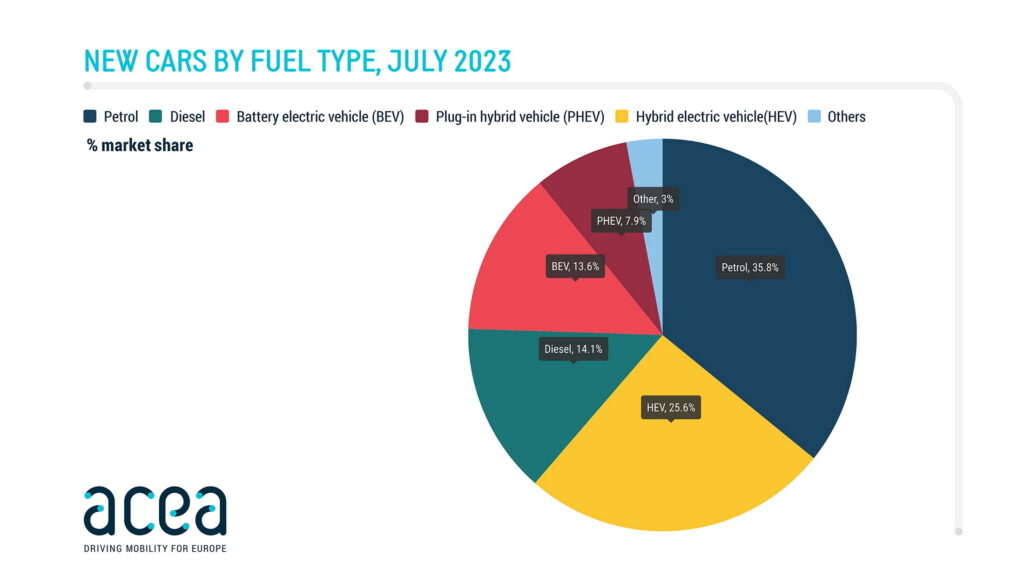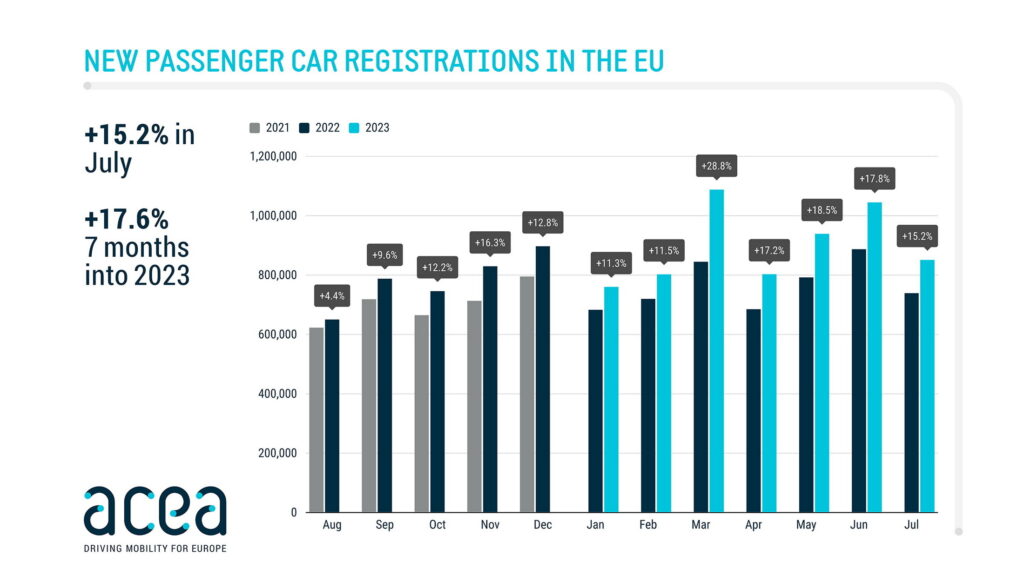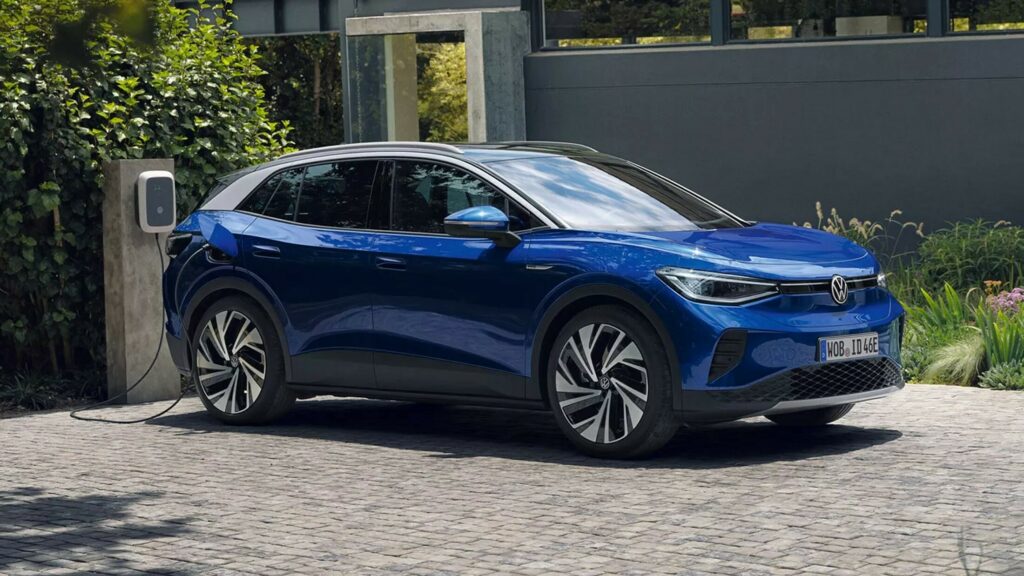The European car market is still on the rise, as automakers recover from supply shortages, with sales going up by 15.2 percent in July, the 12th consecutive month of growth. However, what caught our attention was the 60.6 percent increase in BEV sales compared to last year and the consistently growing share of electrified offerings driven by significant gains in Europe’s largest markets.
As reported by ACEA, Europeans bought a total of 851,156 vehicles in July 2023. The most popular powertrain type was petrol with a 35.8 percent share (304,903 units). Together with diesel‘s declining 14.1 percent share, non-electrified offerings accounted for half of the new car registrations.
More: Hybrid Sales In The US Expected To Triple By 2028

While not yet ready to steal the limelight from ICE-only models, hybrids are on the rise as the second most popular option last month with a 25.6 percent share after recording a sales increase of 31 percent. Battery electric vehicles followed in the third spot with a 13.6 percent share (115,971 units), with an even more substantial increase of 60.6 percent compared to the same month last year. Finally, plug-in hybrids had a share of 7.9 percent (67,060 units) with a more modest 14.5 percent increase.
The impressive surge in the sales of electric vehicles was supported by double-digit gains in Europe’s largest markets – Germany (+68.9%) and France (+32.4%) – with the biggest BEV sales increase recorded in Belgium (+235.8%).
From January to July 2023, car registrations in the European Union totaled 6.3 million units. This is 17.6 percent more than the same period in 2022 but remains 22 percent less than the pre-covid 2019. The year-to-date number comprises 2.3 million petrol-powered vehicles (37%), 1.6 million hybrids (25%), and 819,725 BEVs (13%).





